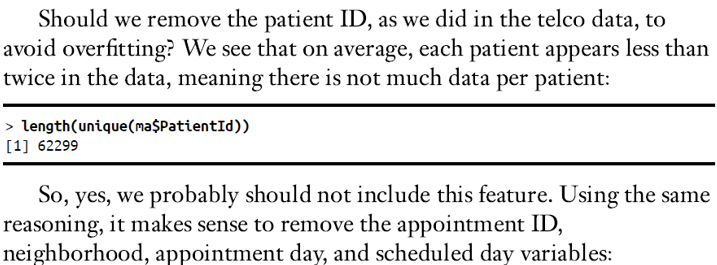I am confused with this logical thinking:

The quote is from the book “The art of ML” by Matloff
He is working with the dataset https://www.kaggle.com/datasets/joniarroba/noshowappointments
I agree with ID columns, but… Why would you not include neighborhood? It seems a good feature, (neighborhoods with bad public transport might get their transport canceled…) Appointment day and scheduled day also seem important…if the appointment was scheduled many months in advance, the patient might forget… Also, if the day is a Friday, maybe people are more forgetful on Fridays… Why is the author discarding useful data?
